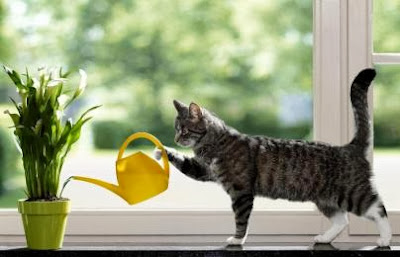We all know what happens when we plant a seed in the ground. If it gets enough water, sunshine, etc., it will grow into a plant. If it doesn't get what it needs, it will not develop. The seed analogy is a great one to apply to our everyday lives because we are constantly planting and watering (or neglecting) seeds that will reap some type of harvest. Some of us plant beautiful forests or fruit orchards, while others plant nothing but weeds and poison oak. If you're like most people, you plant a little of each.
Of course, planting the seed is just the first part of the process. And let me say that it's perfectly reasonable to plant a "bad" seed every now and then---we all do it. Nature doesn't expect or require only good seeds from us. It's only a problem when we make a habit of nurturing bad seeds.
In a down moment you might think, "I'm such a failure," and it might serve as a beneficial wake-up call that says," Wow, that was harsh. I really need to work on self-acceptance." But if, instead, you water that seed by coming up with supporting evidence every day, soon you will live in a failure jungle of your own making. You don't want to live in a failure jungle of your own making!
Similarly, you might have a happy thought like, "I'm doing really well." You can either water that seed with supporting evidence, or let it die of neglect. As you can see, some seeds, we want to take care of, and some seeds, we don't. Nature (or the universal intelligence) doesn't judge the worthiness of the seeds we plant---it simply responds to what we do with them.
Just as we are constantly planting seeds in ourselves that we will either nurture or let die, so are we watering (or stomping on) other people's seeds. When your spouse or child or friend says, "I think it's time for me to find a new job," and we say, "Good luck, there aren't any decent jobs out there," we are inadvertently stomping on their seed. They don't have to let it ruin their seed, but we are making it more difficult for them to feel confident in it.
This week, I invite you to look at the seeds you're planting and nurturing. First, take notice of your areas of successful gardening. Then, ask yourself if any of your positive seeds are dying of neglect, or if any of your negative seeds are threatening to take over your garden? Check in, also, about how you are treating the seeds of those around you.
